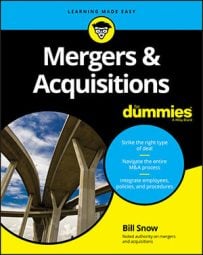Sales and marketing information is key to a successful M&A deal. Who are Seller’s customers, and how does she market to them? Who are her competitors? The following are some of the sales and marketing basics any Buyer wants to determine during due diligence:
Complete customer list, including name, address, telephone number and contact name
Listing of any major customers lost
Listing of open orders and copies of all supply or service agreements
Surveys and market research reports
Schedule of the company’s current advertising programs, marketing plans, budgets, and physical marketing materials
Listing of the company’s major competitors
Sellers should provide customer data by major product line and by percentage of sales. A customer with sales that represent more than 5 percent of the gross sales should be considered major.
One of the most sensitive bits of information for any company is its customer list. Most companies would give their corporate eyeteeth to learn their competitors’ intimate customer details. If you’re a business owner, you know that your customer list is highly confidential.
Due to the sensitivity surrounding the customer list, Sellers should release customer information on a staggered basis, especially if Buyer is a direct competitor at the beginning of due diligence.
Initially, Seller should provide Buyer with an anonymous list (using a code such as “customer 1,” “customer 2,” and so on). Only if and when Seller believes Buyer will close the deal should Seller release specific customer names.
For convenience, that list should match the anonymous list (that is, customer 1 should be the first customer on the list, and so on). Release of the specific names of customers should occur as late as possible in the due diligence session, ideally as close to closing as possible, to minimize any potential problems.
If Buyer is asking to speak with some customers prior to close, Seller should only grant that request as a last and final step before closing. In other words, all other due diligence should be finished and the purchase agreement should be completed.

